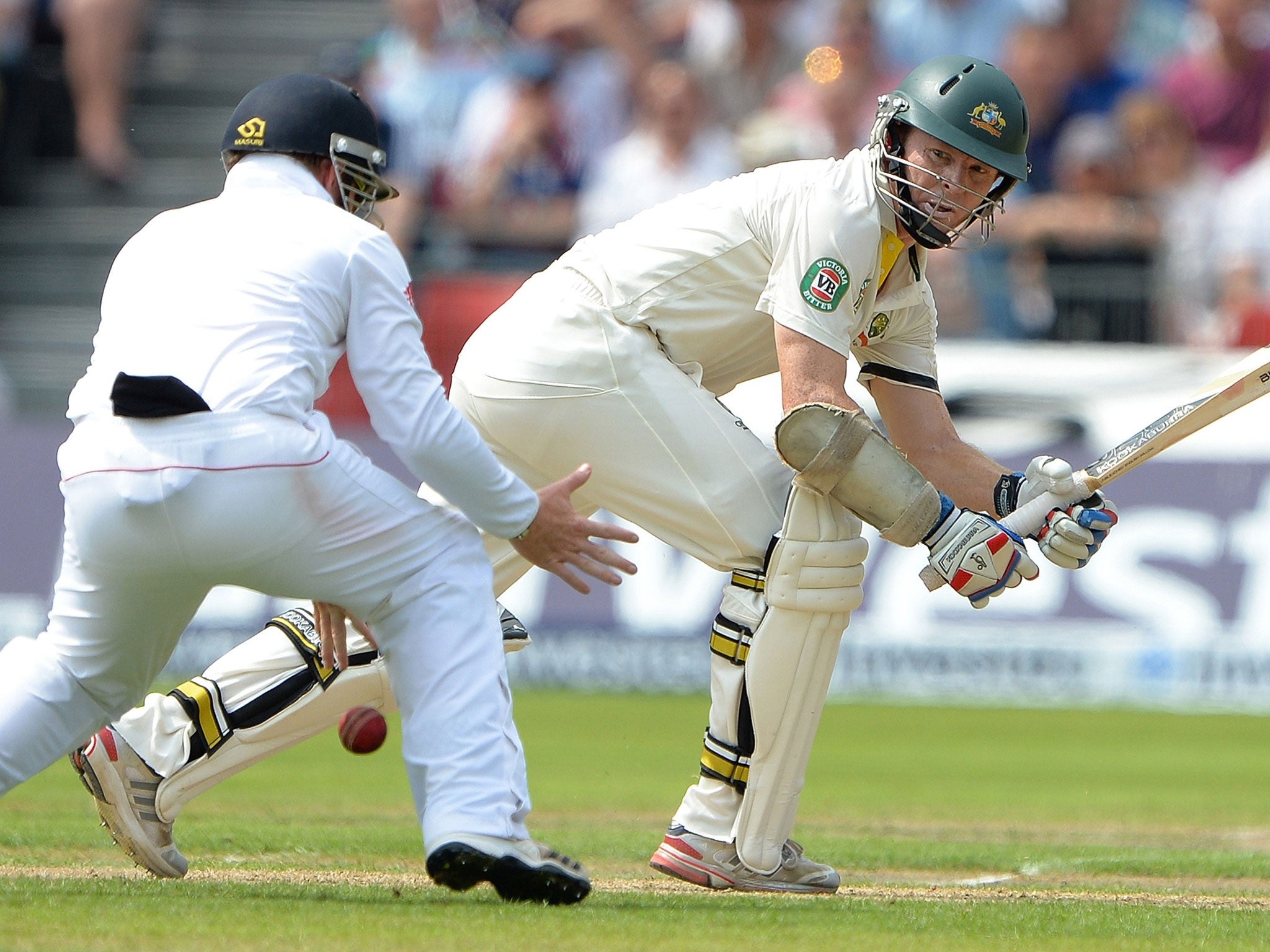John Townsend: Chris Rogers haunted by Old Trafford ghost but proves he belongs
The Aussie Angle: There were such doubts that he was considering a move to Tasmania

Your support helps us to tell the story
From reproductive rights to climate change to Big Tech, The Independent is on the ground when the story is developing. Whether it's investigating the financials of Elon Musk's pro-Trump PAC or producing our latest documentary, 'The A Word', which shines a light on the American women fighting for reproductive rights, we know how important it is to parse out the facts from the messaging.
At such a critical moment in US history, we need reporters on the ground. Your donation allows us to keep sending journalists to speak to both sides of the story.
The Independent is trusted by Americans across the entire political spectrum. And unlike many other quality news outlets, we choose not to lock Americans out of our reporting and analysis with paywalls. We believe quality journalism should be available to everyone, paid for by those who can afford it.
Your support makes all the difference.Chris Rogers may be a darling at Lord's after his yeoman service for Middlesex over the past three years but he is no fan of the ghost in an MCC tie who disrupted his career-defining innings at Old Trafford.
While the closure of the curtain overshadowed the performance, Rogers proved in nearly three hours on centre stage that he has the chops to remain in top company. It took him 15 years in the game and more than 200 first-class matches to walk out to the middle at Old Trafford, but it was a satisfied man who returned to the changing room with 84 to his name. Satisfied, but frustrated in equal parts.
The left-hander was on cruise control for much of his innings and he motored into the eighties with the ease of a batsman having a net with a few mates down at the local park on a sunny afternoon. But as he neared the century that had been a dream for so many years and appeared beyond reach for just as many, Rogers became enmeshed in the distractions of his environment.
Members moving in the pavilion were waved away with an angry flourish that spoke of the mental mosquitoes starting to buzz at the edges of his concentration. An elderly gentleman in an MCC tie was the subject of Rogers' particular attentions and finally got the message sufficiently to close a glass door in front of him where he stood, like an egg-and-bacon apparition, peering down at the action.
The episode had its inevitable conclusion a moment or two later when Rogers attempted to clip Graeme Swann through midwicket but was trapped as he hit across the line. It was one of the few errors of judgement during an innings that produced his highest Test score, took him past 20,000 first-class runs and validated the selection rationale for his Ashes elevation at the age of 35.
Rogers had needed 58 runs to reach 20,000 in a career of consistent excellence and set off with alacrity as both new-ball bowlers gave him opportunities to drive on both sides of the wicket.
James Anderson was squirted for four through gully then overpitched and was driven straight. The bowler came around the wicket within a few balls as he sought to probe Rogers' defences but the batsman was up to the task and drove through the covers time and again. Three fours in four balls took Rogers past 50 and into the realm of that long-held dream. It was exquisite strokeplay from a player more renowned for his workmanlike approach, though a decade of prolific batting must have provided many occasions when the blade flashed and the runs flowed.
Only 13 batsmen have scored a double century against Shane Warne and Rogers' 279, made for Western Australia against Victoria seven years ago, is nearly at the top of the pile. Were it not for V V S Laxman and his ethereal 281 at Calcutta, Rogers would have the honour of the greatest score against the greatest bowler of his and maybe any era.
That feat contrasted with such doubts about his future less than a year ago that he was considering moving to Tasmania and it took intervention from the national selector, John Inverarity, for his new state Victoria to extend his contract. It is to Inverarity's great credit that he had the vision to see Rogers opening for Australia in this series, where the batsman's experience and technical ability against the swinging ball were identified as keys to the attempt to regain the Ashes.
Rogers had concerns before the match that David Warner's imminent return had put his place in jeopardy. He walked off Old Trafford aware that he could still be part of the first act when the curtain goes up on the fifth Ashes Test at the SCG in five months' time.
Join our commenting forum
Join thought-provoking conversations, follow other Independent readers and see their replies
Comments